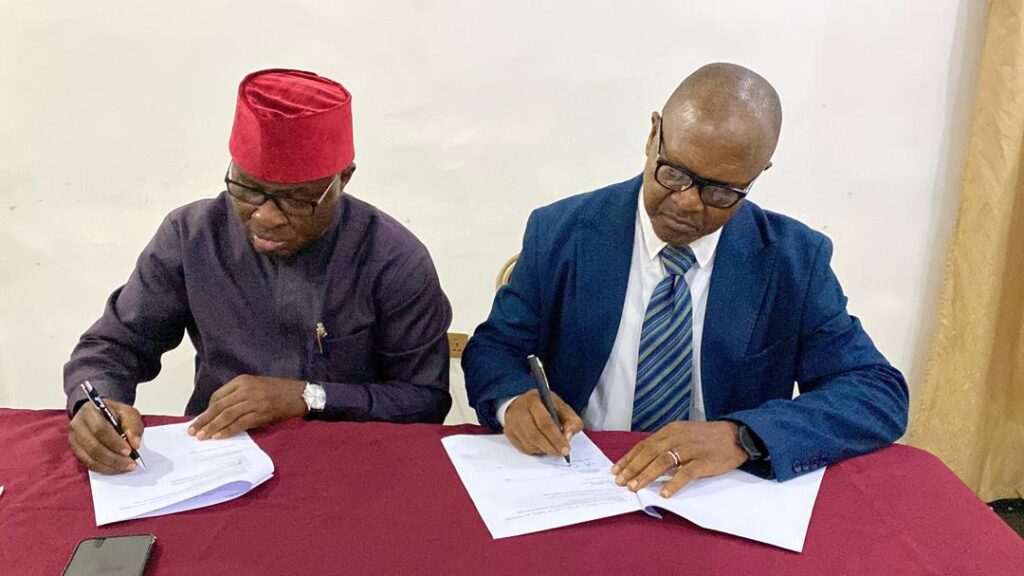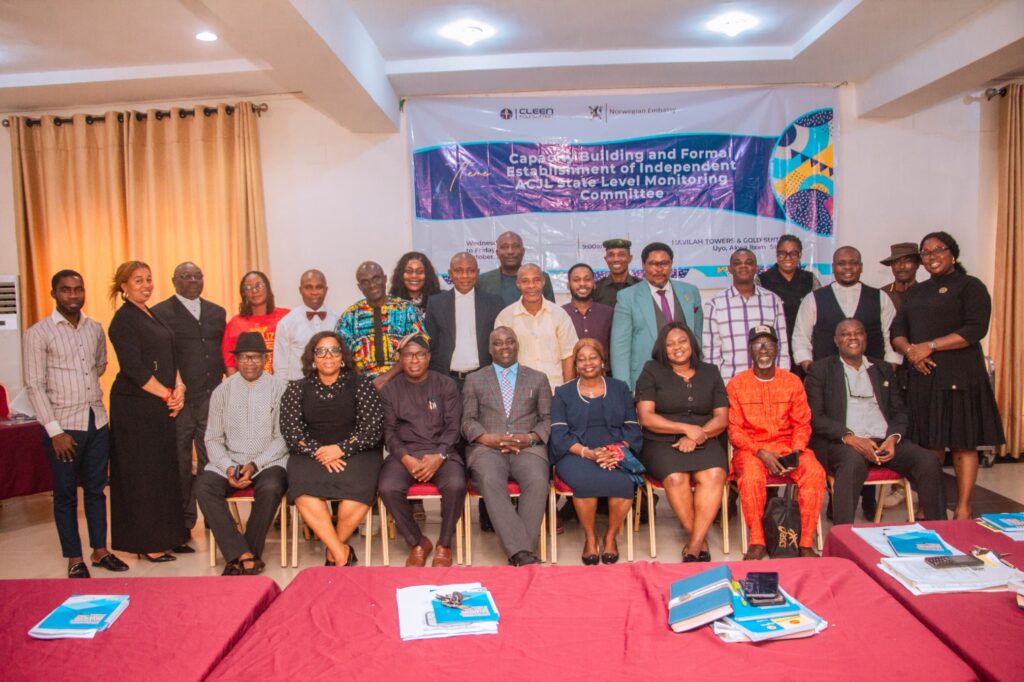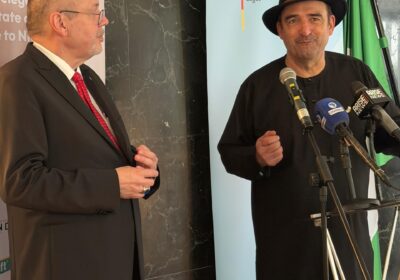ACJL Implementation: CLEEN Foundation sets up a State Working Group in Akwa Ibom.
By Raymond Enoch
Akwa Ibom State has taken a bold and strategic step toward reforming its criminal justice system with the inauguration of an Independent Administration of Criminal Justice Law (ACJL) State-Level Working Group, established to ensure more effective, transparent, and speedy dispensation of justice across the state.

The working group was inaugurated at the end of a three-day capacity-building workshop held in Uyo, organized by the CLEEN Foundation with support from the Royal Norwegian Embassy. The initiative seeks to strengthen the implementation of the ACJL while promoting accountability, human rights protection, and institutional efficiency within the state’s justice sector.
The newly formed group is chaired by retired Deputy Commissioner of Police (DCP) Joseph A. Udoh, with Magistrate Helen Umana, Esq., Director of the State Multi-Door Courthouse, serving as Vice Chairperson. Other key officers include Mrs. Asuzu Amaka, Chief Investigating Officer of the National Human Rights Commission (Secretary); Barr. Adula Sampson of the Legal Aid Council of Nigeria (Advocacy Lead); Mr. Emmanuel Udoyen of the Nigerian Bar Association (Assistant Advocacy Lead); Comrade Solomon Okpo, veteran journalist (Communication and Visibility Lead); and Barr. Comfort Udo, Deputy Director at the Ministry of Justice (Legal Adviser).

Participants at the workshop engaged in sessions on critical areas such as Strategic Advocacy Communication for Policy Change, Coalition Building and Institutional Strengthening, Monitoring and Evaluation for ACJL Compliance, Data Collection and Reporting Techniques, and Stakeholder Engagement Strategies. The sessions were facilitated by Mr. Peter Maduoma, Acting Executive Director of CLEEN Foundation, and Mrs. Chigozirim Okoro, the Foundation’s Programme Manager.
In his acceptance speech, DCP Udoh (Rtd.) described his appointment as “both a privilege and a call to service,” pledging to uphold transparency, professionalism, and teamwork among all actors within the justice system — including the judiciary, police, correctional service, and civil society organizations.
According to Udoh, the ACJL marks “a progressive step toward transforming Akwa Ibom’s criminal justice system” by reducing case delays, safeguarding human rights, and improving accountability from investigation to correctional processes. He emphasized that the working group would drive collaboration among institutions to ensure justice in the state remains “swift, transparent, and people-centred.”
The event concluded with the formal signing of the Committee’s Terms of Reference, symbolizing a shared commitment between CLEEN Foundation, represented by Mr. Peter Maduoma, and the ACJL State-Level Working Group, led by DCP Udoh (Rtd.), to advance justice delivery and accountability in Akwa Ibom State.
With this development, Akwa Ibom joins a growing number of states implementing reforms aimed at making the criminal justice system more responsive, equitable, and aligned with modern best practices.









